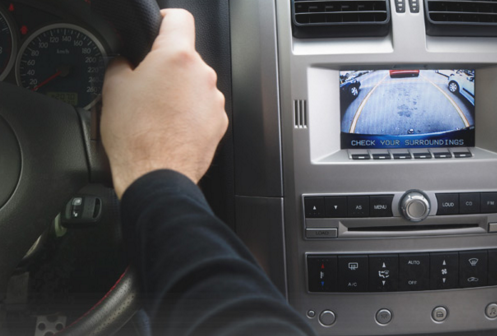Responding to the amendments to UN Regulation UN-R46 04 series, which took effect on June 18, 2016, TUV Rheinland Japan Ltd. announced that it is to begin offering testing and certification services for onboard camera-monitor systems from July 11. The services will be the first testing and certification services for onboard camera-monitor systems to be provided by a third-party certification body in Japan based on the amendments being made to UN-R46 04 series.

UN-R46 is a set of regulations based on an international agreement, covering indirect vision devices for road vehicles. The most significant change accompanying the amendments is the possibility now of manufacturing mirrorless cars. In Europe, CMS has been conditionally permitted in place of mirrors, such as for the front of vehicles, whereas in Japan it was not permitted at all. With the adoption of UN-R46, it will become possible to equip vehicles with CMS in place of conventional mirrors in Japan.
Currently automotive manufacturers are actively developing autonomous driving systems. Because CMS features not only providing rear vision but also monitoring vehicle surrounding conditions that form the basis for these technologies, major advances are expected to take place in this market in the future.
To cater to the anticipated increase in demand, TUV Rheinland Japan has made the decision to launch new CMS-oriented services. With experience in testing camera-monitor devices for medical applications, it is capable of carrying out all of the tests needed to meet the requirements for CMS. With these new services, TUV Rheinland Japan will perform approximately 20 test items, including tests regarding the capabilities of the systems to function as human vision and tests concerning display speed.
There is a possibility that CMS displays will go off or become hard to view due to electromagnetic interference or software bugs. Utilizing its experience and competence with EMC testing of various components and ISO 26262 (Automotive Functional Safety) consulting, TUV Rheinland Japan will be providing technical assessments with regard to these issues.
Kazushi Arima, General Manager, Mobility at TUV Rheinland Japan said, "We are proud to make a timely launch of the testing and certification services for camera-monitor systems (CMS) to both vehicle OEM manufacturers and Tier-1 suppliers. The amendments of UN-R46 introducing CMS is a great step forward in automotive technology, not only for driving safety but also for reducing CO2emissions with smaller air drag coefficient. We will continue to support the development of CMS and its introduction to the market."
For more information on our Vehicle-Mounted Camera Monitor Systems certification solutions, please visit our website or contact us to speak to one of our experts.



